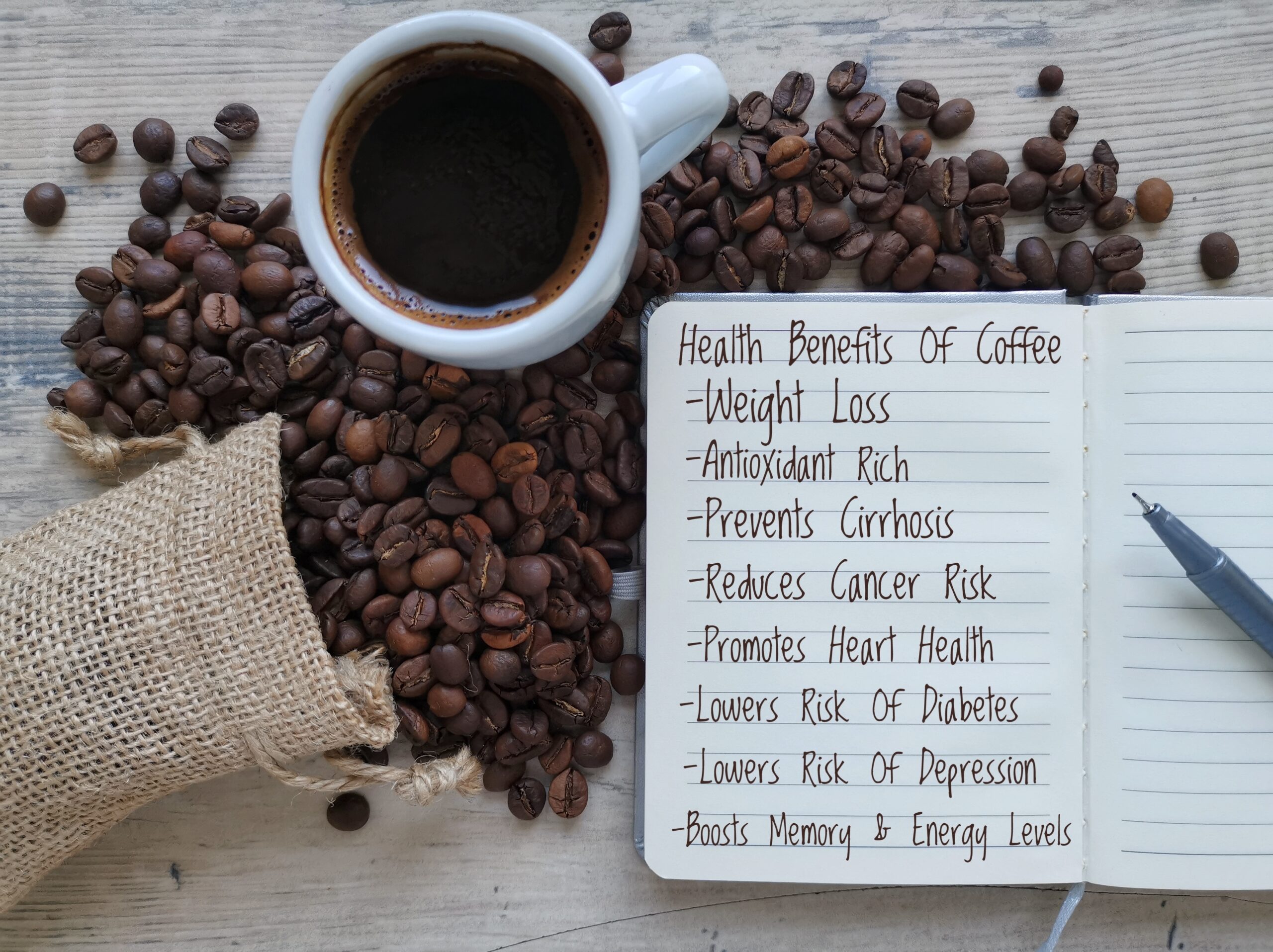Coffee is one of the world’s most popular beverages, with over 2.25 billion cups consumed daily. The origins of coffee date back to the 15th century in Yemen, and by the 17th century coffee had spread to Europe, Indonesia, and the Americas.
Today, coffee is grown in over 50 countries and Brazil is the largest producer, responsible for about 35% of the world’s coffee output. The global coffee industry is estimated to be worth over $500 billion, demonstrating coffee’s massive popularity and importance in modern society.
Coffee plays a major cultural role in many societies. The ubiquitous coffee shops on every urban street corner provide social gathering places and fuel white-collar work culture. Coffee’s rich, warm taste makes it the perfect accompaniment for conversation, reading, and unwinding. For many, a morning cup of coffee is an essential daily ritual.
Coffee as an Energy Booster
- Coffee is well known for providing an energy boost due to its caffeine content. Caffeine is a natural stimulant that blocks adenosine, the neurotransmitter that makes you feel tired. This leads to increased firing of neurons and release of other neurotransmitters like dopamine and norepinephrine.
- The boost in these chemicals stimulates the brain and central nervous system, making you feel more awake and alert. Studies show that caffeine can significantly improve alertness, reaction time, memory, and mood.
- Caffeine also provides a performance enhancing effect on the body. Research indicates that having coffee before physical activity can improve endurance, increase strength, and reduce muscle pain during exercise. This is due to caffeine’s ability to mobilize fatty acids from fat tissues, providing an alternative energy source for muscles.
- By blocking adenosine and increasing adrenaline levels, caffeine induces a fight-or-flight response in the body, providing the energy and focus needed for improved physical performance. Just a couple cups of coffee within 60 minutes before a workout can be beneficial for boosting energy levels.

Coffee for Brain Health and Cognitive Performance
- Coffee can provide a boost to brain health in various ways. The caffeine in coffee blocks adenosine, an inhibitory neurotransmitter in the brain, thereby improving firing of neurons. This leads to improvements in mood, energy, memory, cognition, vigilance and overall brain function.
- Studies have found that coffee drinkers have a reduced risk of developing Alzheimer’s disease and dementia. One meta-analysis of over 200,000 participants found that regular coffee consumption reduced the risk of Alzheimer’s by 32-60% compared to those who did not drink coffee. Caffeine appears to be protective against the accumulation of beta amyloid plaque in the brain, which is implicated in Alzheimer’s.
- Coffee consumption is also associated with a lower risk of depression, with each cup consumed per day reducing depression risk by 8%. Caffeine stimulates the central nervous system and increases production of serotonin, dopamine and noradrenaline, which can improve mood. The antioxidant content of coffee may also play a role in its anti-depressant effect.
- By supporting overall brain health and function, while also potentially warding off dementia and depression, coffee demonstrates that it is truly a brain-boosting beverage. Just a few cups per day can keep your mind sharp and your mood lifted.
Coffee and Disease Prevention
- Regular coffee consumption has been linked to a reduced risk of several major diseases, making it a healthy part of one’s diet when consumed in moderation.
- Studies have shown that people who drink 3-4 cups of coffee per day have up to a 29% lower risk of developing type 2 diabetes. The antioxidants and other active compounds in coffee can improve the body’s regulation of insulin and glucose, helping to prevent diabetes.
- Coffee drinking also appears to be protective against Parkinson’s disease, with research showing a 30% lower risk in moderate coffee drinkers compared to non-coffee drinkers. The caffeine in coffee may help control movement and mitigate the effects of Parkinson’s.
- For liver health, studies demonstrate that coffee drinkers have up to a 40% lower risk of developing liver conditions like cirrhosis. Coffee may help prevent liver damage from conditions like fatty liver disease thanks to its antioxidant and anti-inflammatory effects.
- Overall, coffee consumption seems to have a considerable positive impact on some of the most prevalent diseases. Of course, any healthy habits should be combined with proper medical care, but coffee does show promise in contributing to long-term wellness.
Determining Optimal Coffee Consumption
- When it comes to coffee, more is not necessarily better. While moderate coffee consumption provides many health benefits, drinking too much can lead to side effects like insomnia, anxiety, restlessness, and upset stomach. Experts generally recommend limiting coffee intake to 3-4 cups per day or up to 400mg of caffeine.
- Drinking more than 4 cups daily, especially in the afternoon or evening, can disrupt sleep patterns. Pregnant women are advised to limit coffee to less than 200mg of caffeine per day. Individuals with anxiety or hypertension may also want to curb their intake. The key is moderation – paying attention to how coffee makes you feel and limiting consumption if it causes negative side effects.
- Optimal coffee consumption depends on individual factors like age, medications, health conditions, and caffeine sensitivity. The best approach is to start low, around 1-2 cups daily, and gradually increase if needed. Avoid exceeding 4 cups per day, and be cautious with caffeinated beverages like energy drinks or sodas, which can quickly add up. Drinking coffee mindfully with awareness of your intake can help maximize the benefits while minimizing potential risks.

Tips for Healthy Coffee Drinking
When it comes to maximizing the health benefits of coffee while minimizing any potential downsides, the key is moderation and quality. Here are some tips for enjoying coffee in a healthy way:
- Choose High-Quality Coffee Beans: Opt for fresh, whole bean coffee and grind it yourself right before brewing. This preserves the aromatic oils and flavor compounds. Arabica beans are smoother and sweeter than the bitter robusta variety.
- Consider Brewing Methods: Brewed coffee retains more of the healthful antioxidants than instant coffee. Espresso, drip coffee, French press and cold brew are all great options. Avoid boiling methods like percolators which make the coffee more bitter and acidic.
- Drink It Black or Minimally Sweetened: Skip the heavy creamers and sweeteners and enjoy the coffee’s natural aroma and subtle flavor. A small amount of milk, cream or sugar is fine. Stevia or erythritol make healthy sugar substitutes. Sweeten to taste.
- Watch the Caffeine: Caffeine sensitivity varies by individual. Limit intake to 300-400 mg of caffeine per day, equal to 3-4 cups of coffee. Spread consumption throughout the day and avoid coffee after 2 pm if it affects your sleep. Drink plenty of water to stay hydrated.
- By choosing high-quality beans and brewing methods, limiting sweeteners, and being mindful of caffeine, coffee can be part of a healthy lifestyle.
Addressing Common Concerns
When consuming coffee, there are some common concerns that people have regarding its effects. Here we address some of the top issues:
- Effect on Sleep: Caffeine is a stimulant, so drinking coffee too late in the day can disrupt sleep patterns. It’s best to avoid coffee within 6 hours of your bedtime. Those sensitive to caffeine may need to cease even earlier.
- Interactions with Medications: The caffeine in coffee can potentially interact with certain medications. These include some antidepressants, antibiotics, diabetes drugs, and blood pressure medications. Check with your doctor about possible interactions with your prescriptions.
- Pregnancy and Breastfeeding Considerations: Pregnant women are advised to limit coffee intake to less than 200 mg of caffeine per day, as high levels may be associated with risks like miscarriage or low birth weight. For breastfeeding mothers, excess caffeine can cause irritability and poor sleep patterns in the infant. Moderation is key.
The Takeaway
Coffee has demonstrated numerous health benefits when consumed in moderation. The key benefits include:
- An energy and cognitive boost that can enhance alertness, focus, and brain function. Coffee’s caffeine content can give you a lift both physically and mentally.
- Protection against several major diseases, including type 2 diabetes, Parkinson’s disease, and liver disease. The antioxidants and nutrients in coffee help reduce inflammation and oxidative stress.
- Improved moods and lower risk of depression, with coffee’s stimulant effects also elevating overall wellbeing.
- While more research is still needed, the existing evidence makes a strong case for incorporating coffee into a healthy lifestyle. To maximize the benefits, aim for 3-4 cups per day and avoid excessive sugar.
The future looks bright for uncovering more insights into coffee and health. We can expect to see continued research on the mechanisms behind coffee’s protective effects and potential new benefits. But for now, feel good about enjoying your daily cup of joe! Just be sure to consume coffee in moderation as part of an overall balanced diet.
References:
[1] Healthline. “Top Evidence-Based Health Benefits of Coffee.” 9 Health Benefits of Coffee, Based on Science
[2] Hopkins Medicine. “9 Reasons Why the Right Amount of Coffee Is Good for You.” 9 Reasons Why (the Right Amount of) Coffee Is Good for You | Johns Hopkins Medicine
[3] Cleveland Clinic. “The Health Benefits of Coffee.” This Should Perk You Up: The Surprising Health Benefits of Coffee
[4] Healthline. “How Much Caffeine Is Too Much?” https://www.healthline.com/nutrition/too-much-caffeine
[5] Harvard Health Publishing. “Is it true that coffee is good for your health?” The latest scoop on the health benefits of coffee – Harvard Health
[6] Mayo Clinic. “Caffeine: How much is too much?” Caffeine: How much is too much? – Mayo Clinic
[7] American Heart Association. “Coffee and Heart Health.” https://www.heart.org/en/healthy-living/healthy-eating/eat-smart/caffeine/coffee-and-heart-health
[8] National Institutes of Health. “Chlorogenic acids and lactones in coffee.” A randomized, double-blind, placebo-controlled trial to determine the effectiveness of botanically derived inhibitors of 5-alpha-reductase in the treatment of androgenetic alopecia
[9] Nature. “Association of coffee drinking with total and cause-specific mortality.” https://www.nature.com/articles/nepal201115
[10] Journal of Alzheimer’s Disease. “Caffeine as a protective factor in dementia and Alzheimer’s disease.” https://pubmed.ncbi.nlm.nih.gov/20182054/



